The 7 Best Residential and Backconnect Proxy Providers for Web Scraping
Sergiu Inizian on Jul 02 2021
Nowadays, web scraping seems like the perfect solution for valuable data. Easy access to helpful information which can later be used to optimize your projects is essential in today’s fast economy.
However, many websites are not fans of this practice. As a response, they have implemented several countermeasures, such as blocking activity coming from suspicious IP addresses.
This is why proxies are key for any web scraping endeavor. However, you’ll need a reliable proxy pool with quality IP addresses. Additionally, you should also keep in mind that rotating proxies offer you even more privacy and scraping possibilities.
This article will talk about residential and backconnect proxies, which are probably the most useful ones for web scraping projects. Then, I’ll present a list of the most reliable providers of these two types of proxies.
Why should you use proxies?
To explore the intricacies of specialized proxies, we need to understand the core of what these intermediaries do. And what better way to start than with a definition.
When accessing a website, you are not the only one who collects information. The site can identify your location, device details, and IP address. Proxies act as a filter between you and the server and mask your IP and location. This is especially useful when scraping data because some websites don’t necessarily agree with this practice and don’t shy away from banning suspicious addresses.
For web scraping, using proxies is essential because you protect your privacy and can access more content than usual. However, keep in mind that you need a vast proxy pool to avoid detection and collect geo-restricted content successfully.
You should also be rotating between proxies to have more control over your request. The rotation is handled through something called backconnect proxies. I’ll expand on them later but for now, keep in mind that automatically rotating proxies is always more efficient than doing it manually.
Now that we understand the importance of proxies in data extraction, let’s look at residential, rotating, and backconnect IPs.
What are residential proxies?
These types of proxies are hosted by an Internet service provider and have real locations. As a result, they are usually considered the high-end option compared to datacenter IPs. As the name suggests, the latter ones are hosted by a data center and are usually shared by several users, making them more likely to get detected and banned.
It’s also important to note that a reliable proxy pool has to include plenty of residential proxies from various locations worldwide. This feature increases the chance of bypassing any anti-bot measure while also ensuring access to geo-restricted data.
Using residential proxies can drastically reduce the chance of getting your scraper blocked because they are unique and can’t be linked to each other. Additionally, having access to IPs from many different countries also increases the chance of connecting to an address that is close to the targeted server. This perk can really decrease the time in which a request is processed.
Keep in mind that residential proxies are more expensive than other types, such as datacenter IPs. However, if you are planning to scrape Google or social media platforms, you’ll probably need to spend that extra money. These websites are very vigilant and can easily detect both known proxies and bot behavior on their pages.
The other downside which you should keep in mind about these proxies is the limited speed. Since you are dealing with many different locations and Internet service providers, your requests can take more to process sometimes. However, this depends on the quality of the proxy services. To avoid lag while scraping, you should pick a reliable proxy provider that fits your needs.
What are rotating proxies?
With a reliable residential proxy, you can avoid detection and a possible ban, but you may still get slowed down by the site’s request limit. Additionally, handling your scraping project with a single proxy won’t get you far.
The secret is to use many different proxies and rotate between them. Trying to manually change proxies any time you encounter issues is a waste of your time and resources. Instead, automatic proxy rotation is an essential feature if you are looking to stay hidden and optimize scraping results.
By automatically switching proxies, the proxy provider sends your requests through a different IP each time. As a result, you can send thousands of requests with no delay and without fear of being blocked.
Rotating proxies ensures that you use a proxy pool at its full potential and get all the data you need in record time. Want to learn more about rotating proxies? Check out our comprehensive article here!
What are backconnect proxies?
A backconnect proxy refers to a proxy server that manages a pool of residential IPs and facilitates rotation. Additionally, it increases the security of the addresses and ensures full anonymity when scraping.
At their core, backconnect proxies act as a node that manages the connection between you and the proxy pool. Thus, it makes the whole process easier by allowing you to connect constantly to the pool through a single endpoint.
Backconnect proxies make IP rotation possible by acting as servers that swap your IP at random or at a given interval. The time between switches depends on the quality of the provider and your preferences. Ideally, you should change IPs with every request.
Backconnect proxies are highly efficient for large scraping projects. They automate rotation and help you avoid common anti-bot measures such as rate-limiting and banning. With these proxies, you can effectively use your proxy pool without having to manage it manually.
When buying backconnect proxies, keep in mind that they are considered a premium service and can be expensive. Therefore, always do your research about proxy providers to find a price that fits your budget.
Another aspect to consider when choosing these types of proxies is lagging requests. You can encounter this situation for many reasons, but the most common is the distance between the server you are targeting and the backconnect proxy. Again, for the best experience, try to choose the closest proxy to the target and always pick a provider with a vast proxy pool.
Best residential and backconnect proxy providers
Now that you know the basics of residential and backconnect proxies, it’s time to discover some of the best providers of these two types of proxies. This is by no means a complete list. I picked these services based on pricing, the number of residential proxies, rotation features, and the efficiency of backconnect proxies.
1. WebScrapingAPI
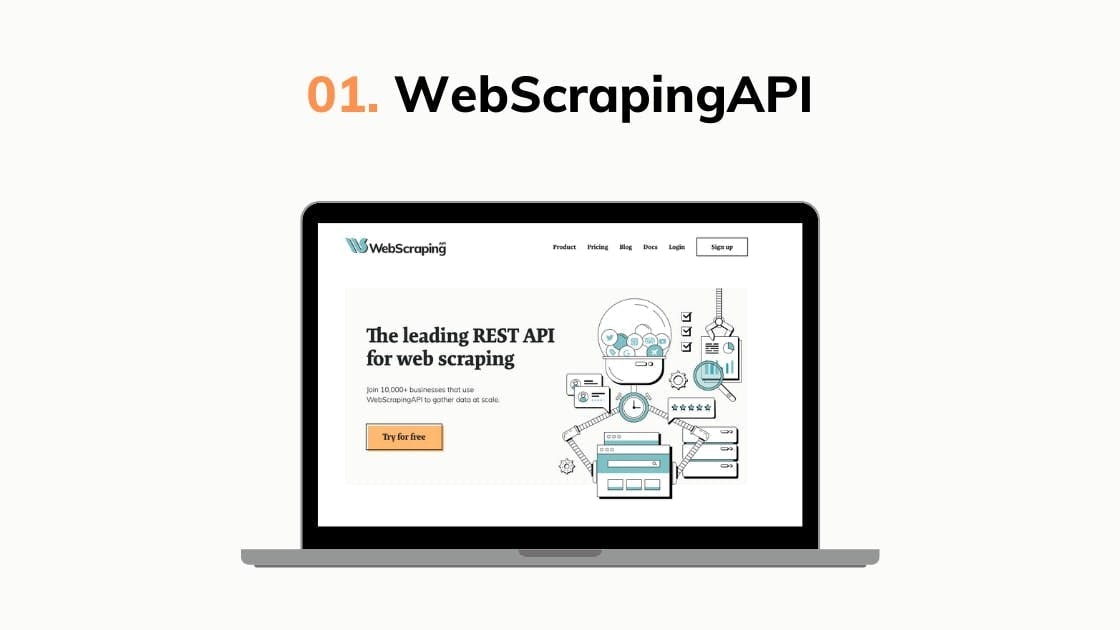
WebScrapingAPI has more than 100 million, mostly residential proxies. The API handles proxy rotation, which takes a considerable part of the job off your shoulders.
Our tool offers four subscription plans, one of which is free but does not include geotargeting features. The most popular package goes for $90/month and provides you with 1,000,000 API calls. It lets you use any kind of proxy from 40 different countries. If you still need more, the custom plan can accommodate IPs from more than 195 different locations.
With our API, you pay based on the number of API calls and not on used bandwidth. Don’t worry. Only successful calls will be counted towards the monthly total.
Apart from the impressive proxy pool and rotating capabilities, WebScrapingAPI can also use custom headers, solve Captchas and execute Javascript. In addition, you can have a high-tech data extraction tool and a proxy manager all in one place. So, you’d get a powerful web scraper with high-end proxies already integrated. All that’s left is to start gathering data.
2. Bright Data
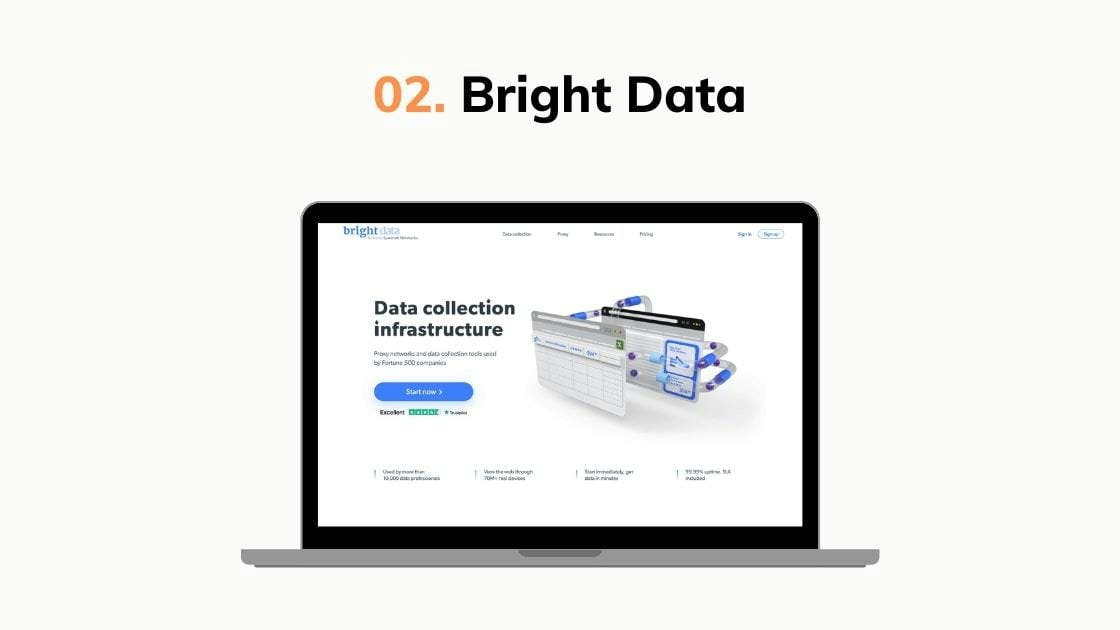
Bright Data offers access to one of the largest residential proxy pools out there, with more than 72 million IPs around the world. The service also provides a Chrome extension, an API, and a proxy manager to handle all your proxy needs.
With Bright Data, you can pay as you go, depending on how much you use their product, or you can subscribe to one of their monthly or yearly plans. Their pricing is based on bandwidth, with their cheapest monthly package being priced at $300. However, you can also request an offer tailored to your needs.
The proxies can be rotated based on country, city, and even carrier. Additionally, their backconnect proxies guarantee unlimited concurrent requests, which increases the overall efficiency of the web scraping process.
3. GeoSurf
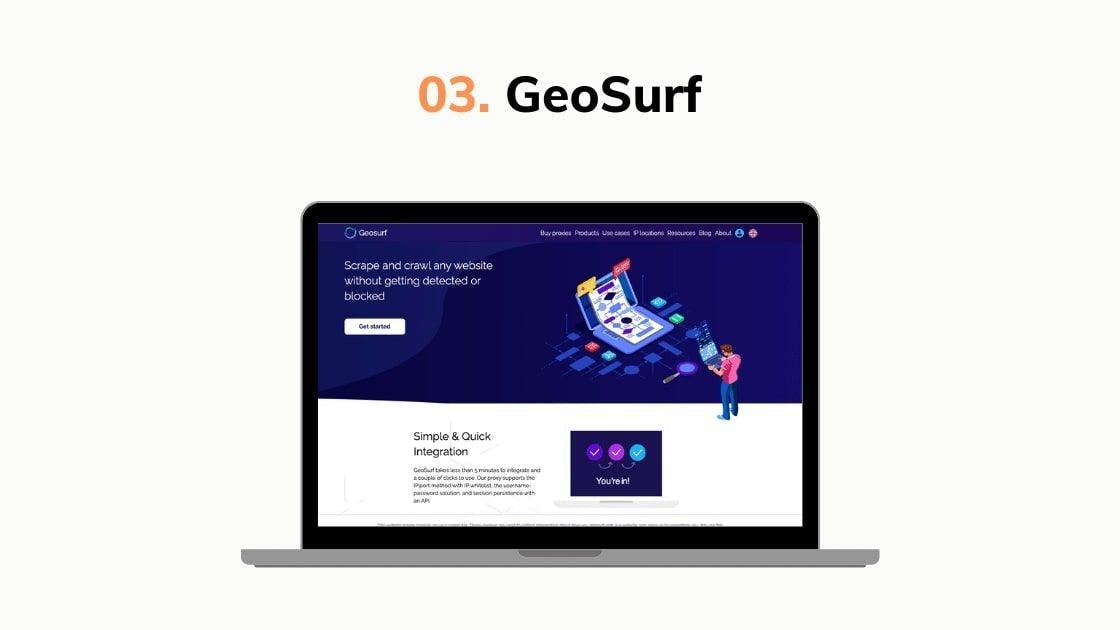
With more than 2 million residential IPs available, GeoSurf is a proxy service that provides an API to assist developers and uses statistics to monitor and optimize your scraping project.
The company has several subscription plans to choose from, depending on the bandwidth size. Their most affordable one is priced at $450/month and offers 38 GB with residential IPs in more than 130 countries.
They automatically rotate proxies and even provide IPs from less common locations such as the United Arab Emirates. Additionally, the tool also comes with a browser extension, which lets you change from static to residential IP in the browser. It won’t help with web scraping but it does keep you anonymous while surfing the net.
4. Shifter
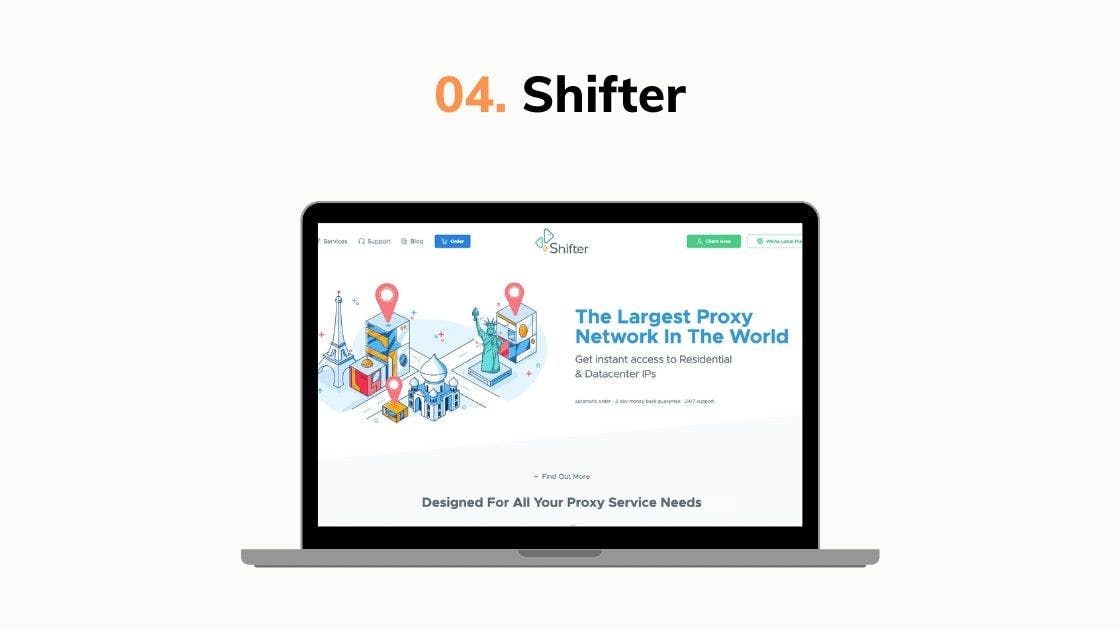
Shifter includes a proxy pool of more than 31 million residential IP addresses and offers unlimited bandwidth. While they are mostly focused on datacenter proxies, they also have a decent offering for rotating residential proxies.
The prices start at $250/month for ten backconnect proxies, which automatically rotate IPs. These highly reliable proxies are never detected because they rotate every 5 minutes.
When it comes to geo-targeting, they have IPs spread around the world. Additionally, their proxies are compatible with most software that supports both HTTP(S) and Socks 4/5 protocols.
5. Intoli
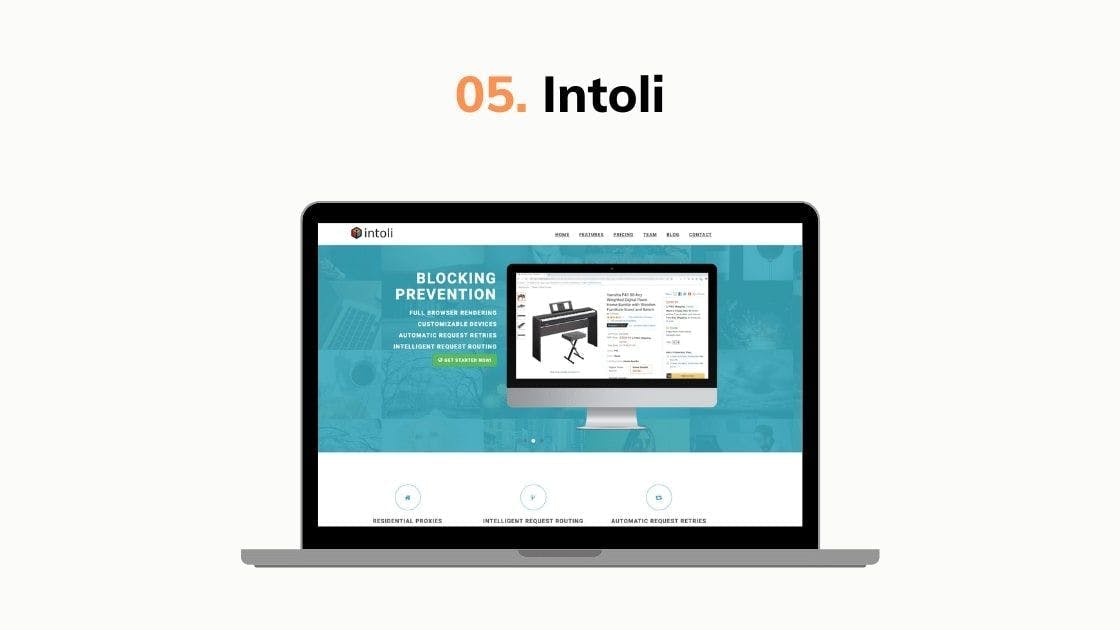
Intoli is a proxy provider which also automatically detects bot blocking attempts and retries failed requests. It also includes an analytics dashboard to monitor your success rate and data usage, as pricing is calculated based on bandwidth.
Their starter plan is priced at $200 per GB and includes email support. However, you can also contact the company and request a tailored custom plan that fits your needs.
With Intoli, you can specify the geographical region for your request or use sticky sessions if you wish to retain certain IP addresses for several requests.
Unfortunately, we couldn't find the number of IPs their customers can use.
6. HomeIP
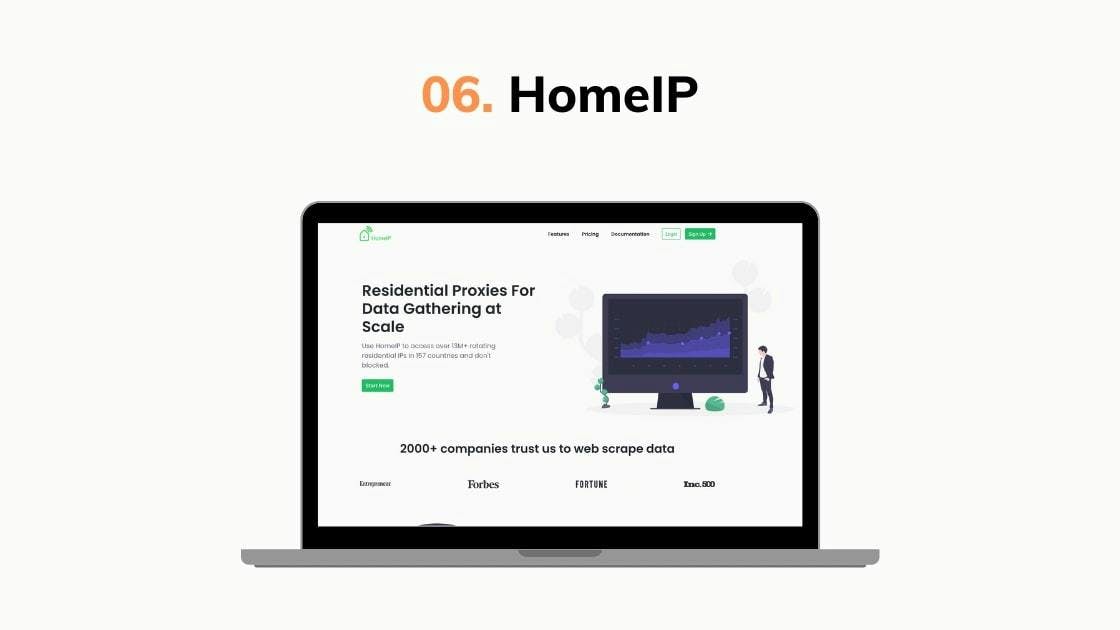
HomeIP provides more than 13 million rotating residential IP addresses and can be easily integrated into any web scraping project. The proxies have a 99.9% uptime, and support teams are available 24/7 to answer any questions.
When it comes to pricing, the smallest package costs $85 per month and offers 5 GB of traffic. They provide a 7-day free trial for tech companies and a 3-day money-back guarantee if the plan doesn’t fit your scraping needs.
The provider includes IPs from more than 157 countries. Moreover, you can access more specific content by targeting cities and rotate IPs at customized times, from 1 to 30 minutes.
7. OxyLabs
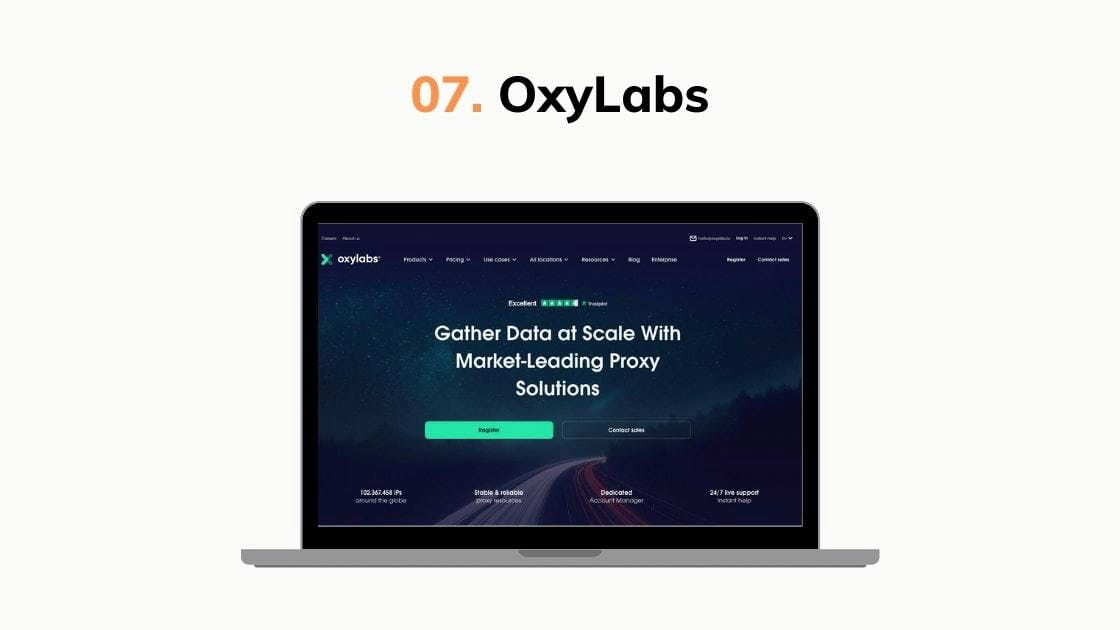
OxyLabs features one of the largest residential proxy pools online, with over 100 million IPs. They also implement AI assistance to effectively parse eCommerce data with ease.
Their starter plan is priced at $300/month and includes 20 GB of traffic, with an average request success rate of 99.2 percent. If you are planning large web scraping projects, you can also opt for their yearly plans.
The company handles IP rotations through backconnect proxies and provides a map of their proxy locations. With it, you can select not only the country but the city as well. They include countries from all around the world.
Picking a proxy provider
Residential and backconnect proxies are the backbone of any reliable proxy pool. With their help, you can avoid many anti-bot countermeasures and access more specific content.
Picking a proxy provider depends on your needs. While proxy providers are a great resource that can be paired with a pre-built scraper, managing both can be a challenge. At the end of the day, we recommend using an API to take care of both the scraper and the proxies.
However, a good piece of advice is to try out all of the proxy providers. Discover what your scraping needs are and begin from there. For starters, why not have a look at WebScrapingAPI’s free trial?
News and updates
Stay up-to-date with the latest web scraping guides and news by subscribing to our newsletter.
We care about the protection of your data. Read our Privacy Policy.

Related articles
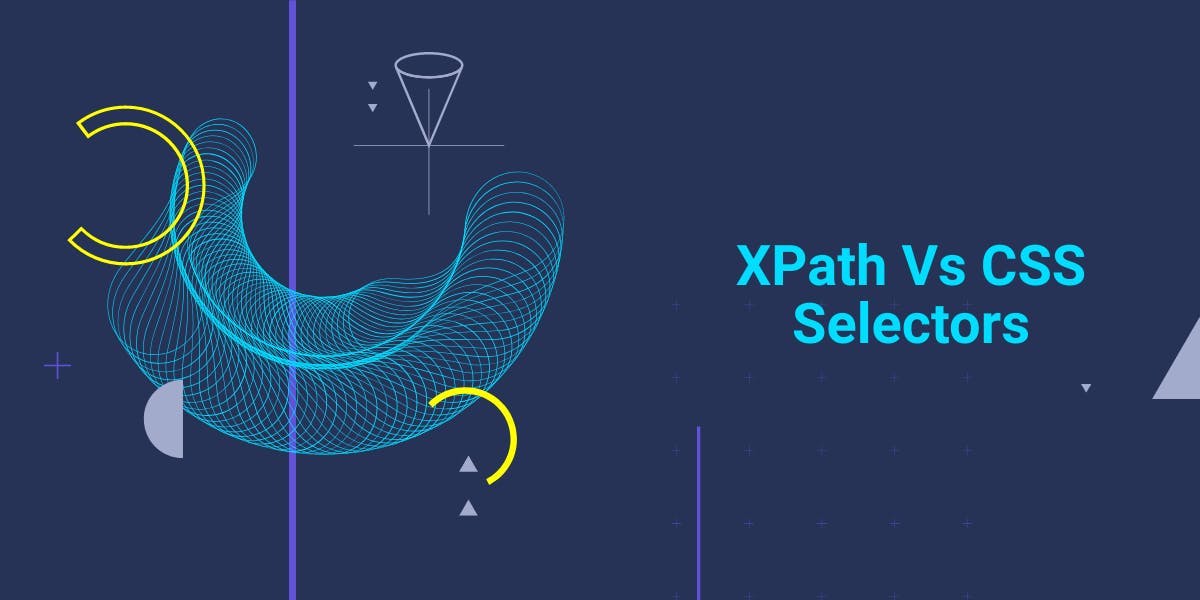
Are XPath selectors better than CSS selectors for web scraping? Learn about each method's strengths and limitations and make the right choice for your project!

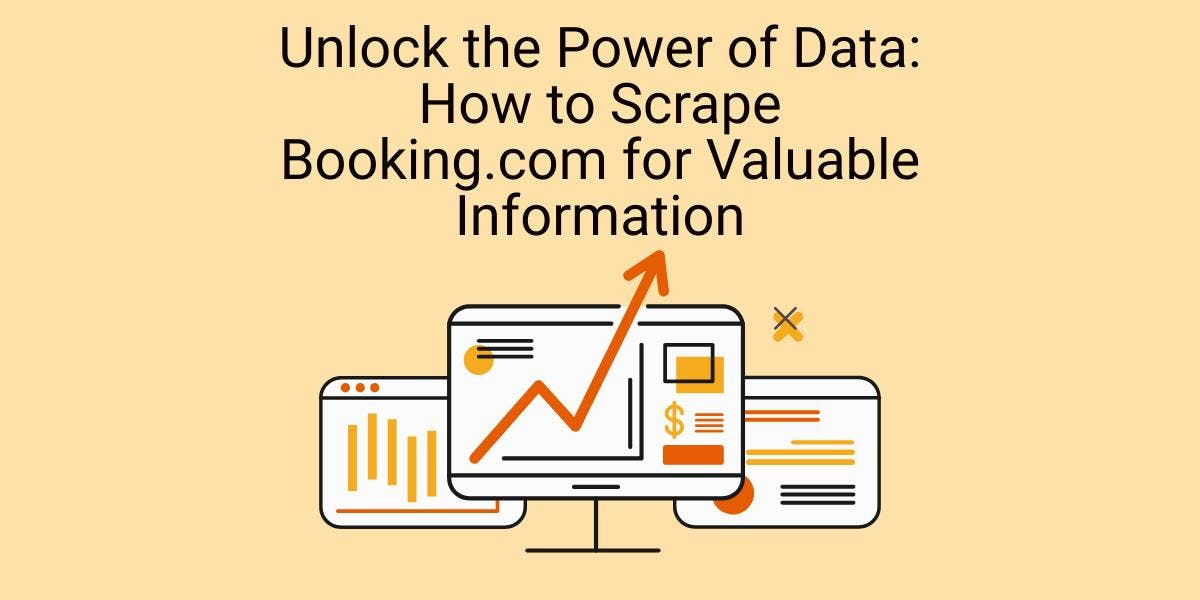
Scrape Booking.com for data on hotels and rentals with Puppeteer. Our tutorial teaches data extraction and web scraping, unlocking insights on pricing, ratings, and more.

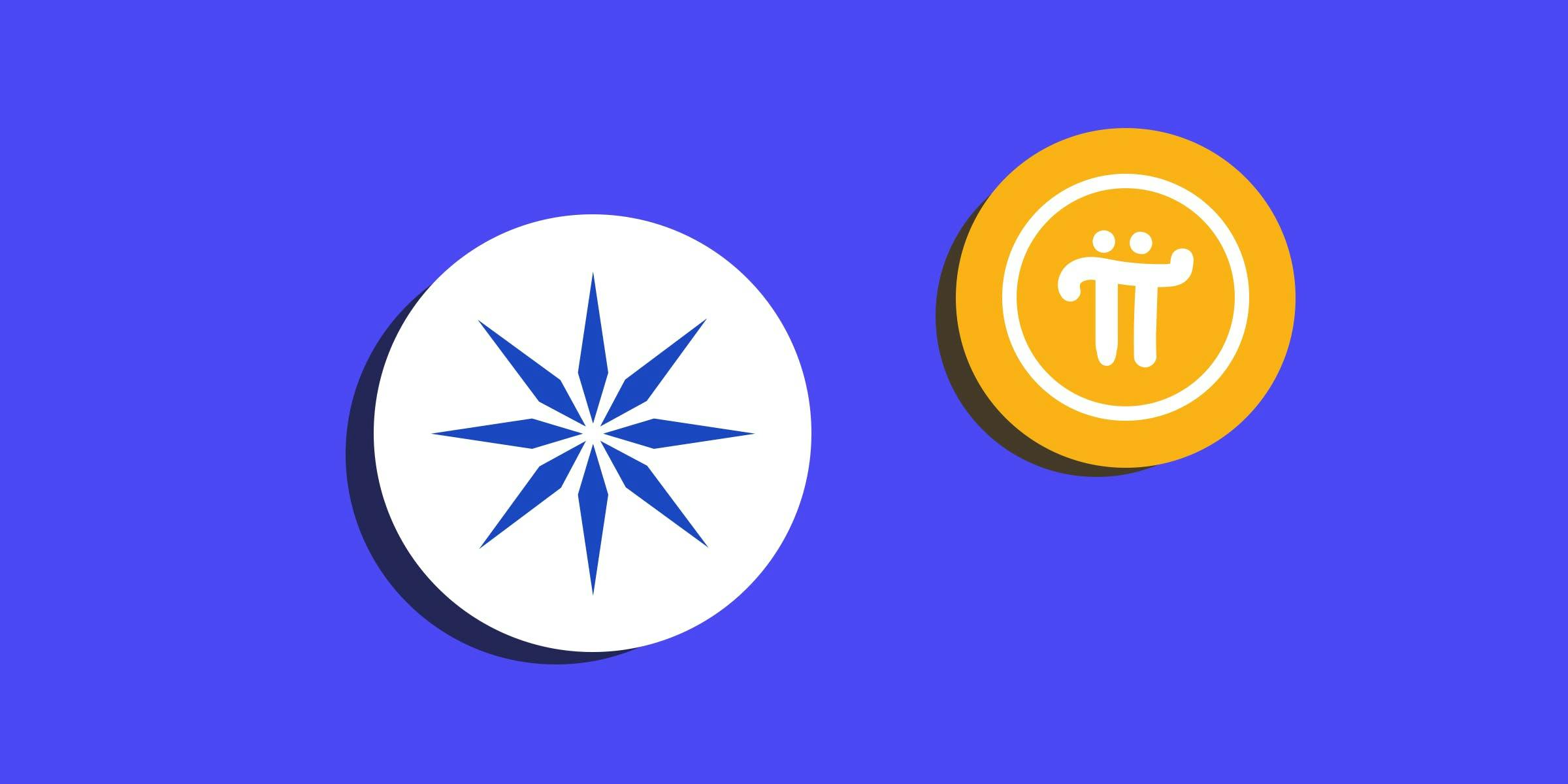
Understanding the difference between two different DAO models for decentralization, we are reviewing simmilar but toatally different neworks ice and Pi.
